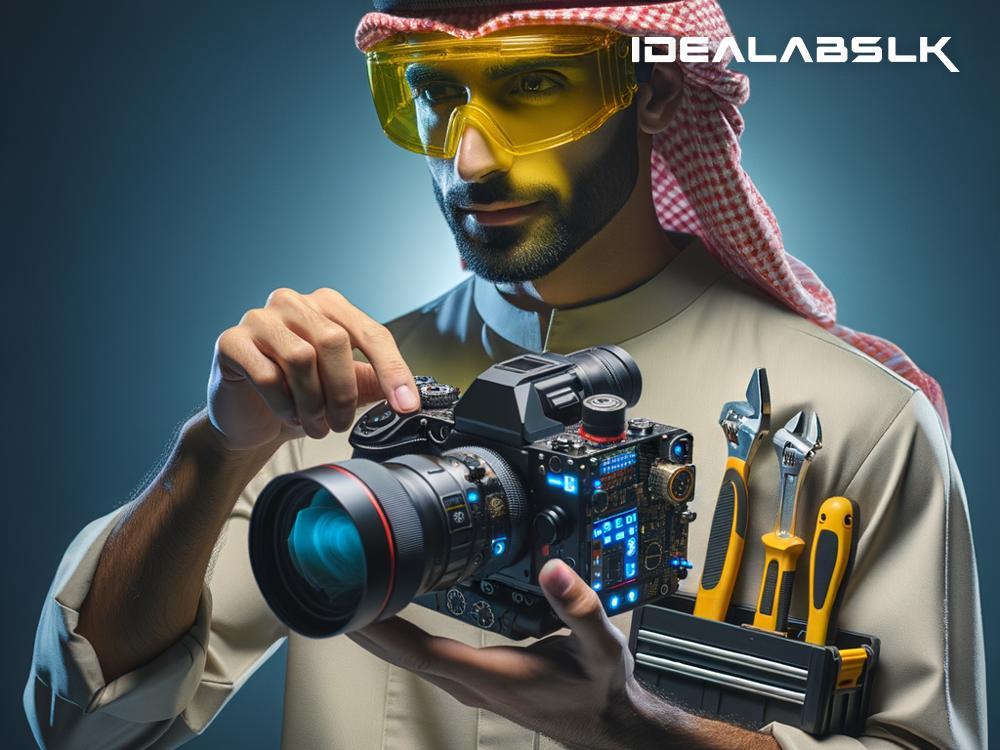AI in Next-Gen Cameras: The Magic of Real-Time Scene Adaptation
In the realm of photography, capturing the perfect shot often hinges on countless variables. From lighting conditions and shadows to the fast movements of your subjects, snapping that ideal photo can sometimes feel like catching lightning in a bottle. However, the advent of artificial intelligence (AI) in next-generation cameras is dramatically altering this landscape. AI is not just changing the game; it's fundamentally reshaping it, introducing what's known as real-time scene adaptation. But what exactly does this mean, and why is it so revolutionary?
The Basics of AI in Cameras
To grasp the magic of AI-powered real-time scene adaptation, let's first break down the AI component in today's cameras. Essentially, AI in cameras involves smart technology that can analyze the scene it's viewing—instantly and in real-time—and make decisions on how best to capture it. This analysis might include identifying whether you're trying to take a picture of a breathtaking sunset, a bustling street scene, a serene landscape, or a fast-moving sports event.
How Real-Time Scene Adaptation Works
Imagine you're at a birthday party, trying to capture the moment the birthday person blows out their candles. In a traditional setting, you'd have to adjust your camera settings manually, considering factors like low light, movement, and so forth. With an AI-powered camera, however, the moment you aim your camera at the scene, it understands what's happening. It knows it's a low-light scenario with potential quick movements and adjusts its settings in the blink of an eye. The result? You get a well-lit, sharp image that captures the joy of the moment perfectly, without having to fiddle with your camera’s dials and settings.
Why It's a Game-Changer
Real-time scene adaptation through AI is revolutionary for several reasons. Firstly, it democratizes photography. You no longer need to be a professional with an in-depth understanding of photography principles to take a great photo. Whether it’s a starry night or a sunny day at the beach, the camera does the heavy lifting, making high-quality photography accessible to everyone.
Secondly, it opens up new possibilities for creativity. With AI handling the technical aspects, photographers can focus more on composition, storytelling, and capturing moments that matter, without worrying if the settings are right for the scene. This freedom can lead to more experimental, expressive, and engaging photography.
The Future of Photography with AI
The integration of AI in cameras is just scratching the surface. Future developments could include even more nuanced understanding of scenes and subjects. For instance, AI could recognize the emotional tone of a scene, adjusting color tones and lighting to match the mood you want to convey. Imagine a camera that not only knows it’s photographing a rainy day but can also adjust the image to highlight the coziness or melancholy of the moment, based on your preferences.
Moreover, the potential for learning and customization is enormous. Your camera could learn from your past photos, understanding your unique style and preferences, and automatically applying these insights to help you achieve your desired aesthetic more consistently.
Challenges and Considerations
While the benefits of AI in next-gen cameras are immense, there are challenges to consider. Privacy and ethical concerns are at the forefront, especially with cameras that can recognize faces and scenes. Manufacturers and users alike must navigate these issues carefully, ensuring that the use of AI respects individual privacy and ethical standards.
Additionally, there's the risk of over-reliance on AI, potentially stifacing the development of skills and understanding in photography. Balancing AI's capabilities with opportunities for learning and experimentation will be crucial as this technology continues to evolve.
Wrapping Up
AI in next-generation cameras, particularly through real-time scene adaptation, is not merely an innovation—it's a revolution in how we capture the world around us. It makes photography more accessible, enhances creative expression, and opens the door to future advancements that can further transform the art and science of photography. As we stand on the brink of this exciting frontier, it's clear that the future of photography is bright, intelligent, and incredibly adaptive, thanks to AI.

